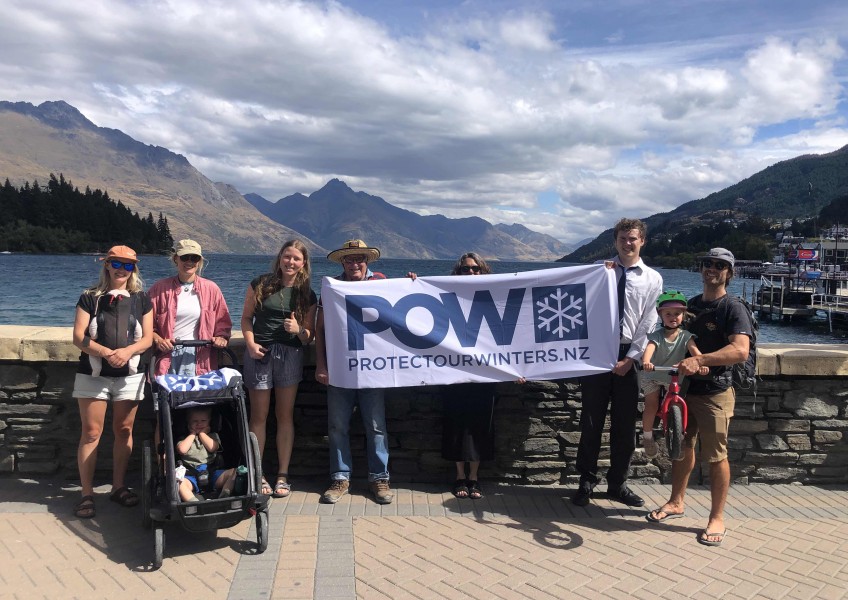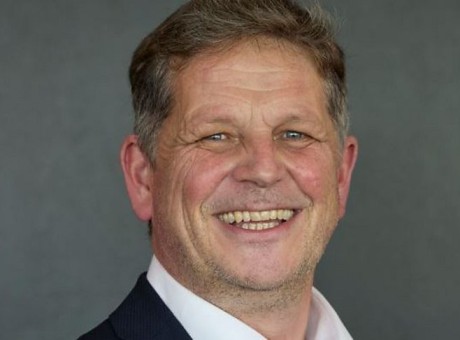Queenstown adds voice to youth climate strikes

Today, the youth-led Climate Strikes made a return to New Zealand streets, with 10 events around the country, and one here in Queenstown.
In attendance were Hannah Young of Protect our Winters – who organised the event – Whakatipu High School environmental prefect Eoin McGlynn, and New Zealand climate change researcher Dr Jim Salinger, who lives locally.
Around the country the protestors presented five demands to the government, and they were echoed at the local event:
“No new fossil fuel exploration or mining to stop emissions at the source," Ms Young says.
"Make the voting age 16 to allow young people to have a bigger voice as they are who will be most affected by climate issues in the future.
“Food production is such a vital part of our society we must ensure it is sustainable and will stand the test of time and severe weather.
“Our oceans are such a big part of the earth - it’s imperative that we protect them to allow all of marine life to thrive as they always have."
They're also asking for subsidies for low-income families for e-bikes.
“Fifty percent of car trips taken by New Zealanders are less than 6 kilometres, which could become a 15 minute e-bike ride.”
Ms Young says as a group they also talked about acting locally and the grassroots environmental organisations people in the district can get involved in, like the Reforestation Trust and the Whakatipu Wildlife Trust.
"It feels good to be involved in the global and national movement," she says.
Supporting the strike in Queenstown was New Zealand climate researcher Dr Salinger, who first detected signs of global warming in 1976. A decade later, he foretold climate change would be very costly for New Zealand if quick action wasn't taken, predicting climate-related events would ramp up in 2020.
“It’s not nice being right in this case,” Dr Salinger says, referring to the recent flooding in Auckland and destruction caused by Cyclone Gabrielle.
In the wake of these disasters, Dr Salinger says Queenstown Lakes shouldn’t continue development on landslip areas or flood plains, information he’s passing on to the council’s Climate Reference Group in their meeting on Monday.
“We need to prepare for what the climate will throw at us.”
He also notes how much the South Island glaciers are shrinking – citing NIWA research, which predicts most South Island glaciers will disappear within ten years.
Stuff has reported thousands more gathered in Wellington and Auckland for the strikes, while Ms Young says there were approximately 10 at the hastily-arranged event in Queenstown.
Protect our Winter’s was contacted “at the last minute” by School Strikes for Climate to host a Queenstown event, giving them limited time to organise, she says.
Whakatipu High School prefect Eoin McGlynn was the only one from his school to attend, saying it was partially the late notice but also the school’s history for not respecting the climate strikes.
Mr McGlynn says that detentions were handed out to those who attended the climate strike events in 2019, a move that Dr Salinger strongly disagreed with.
“It's absolutely shocking, given it’s the future generations who’ll be affected,” Dr Salinger says.
Mr McGlynn also feels there's very limited education about climate issues at the school.
All we’re told about is to pick up rubbish, he says, which is “below the bare minimum”.
Main image (from left to right): A small but might crowd of young climate change protesters in Queenstown, Friday, March 3.

























